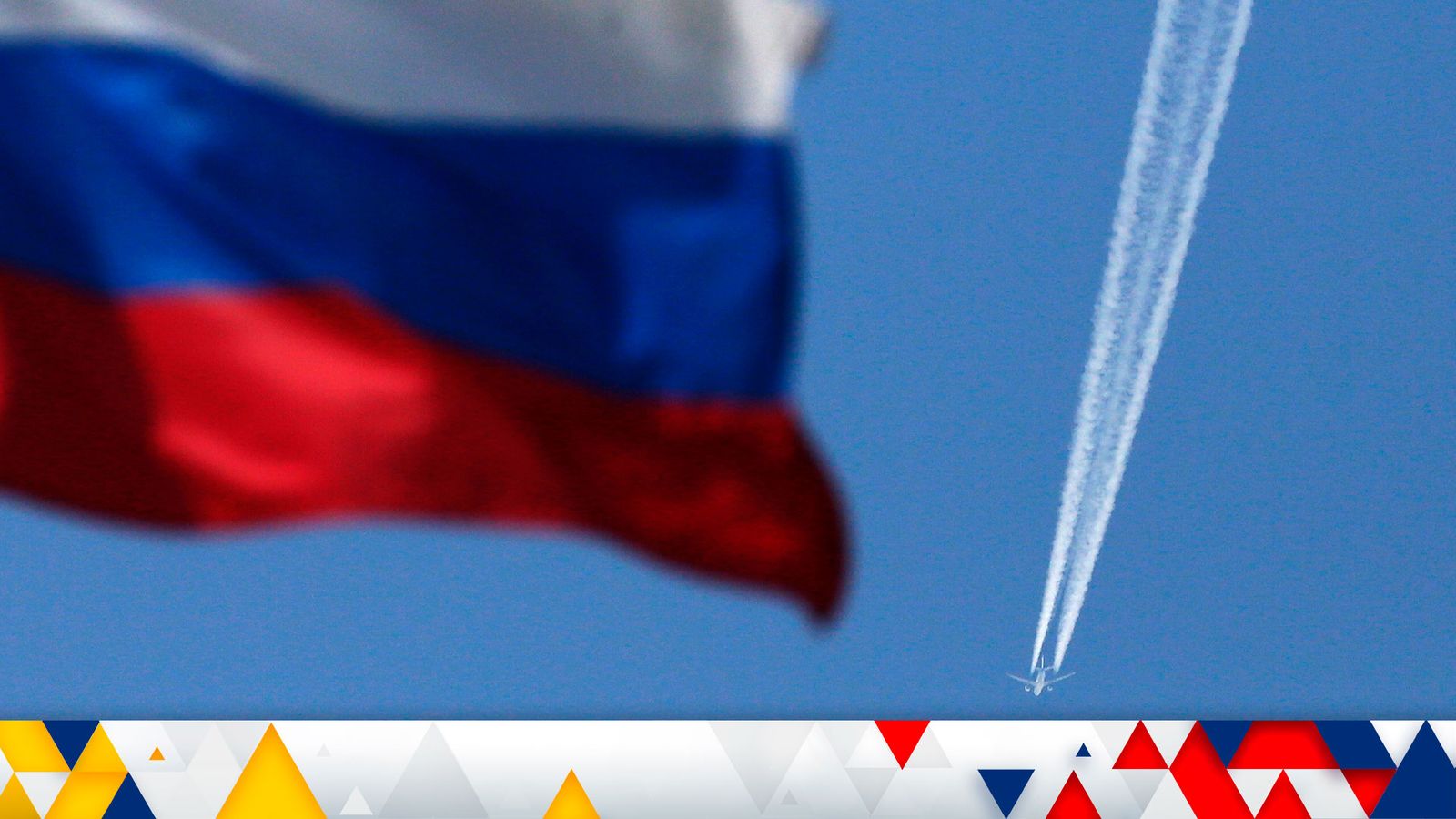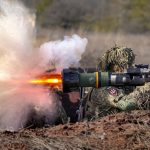The European Union is shutting down its airspace to Russian planes and – in what is a first for the bloc – will start shipping arms to Ukraine.
The president of the European Commission, Ursula von der Leyen, announced a raft of further measures targeting Vladimir Putin’s regime – including a ban on state-owned media Russia Today and Sputnik.
“First, we are shutting down the EU airspace for Russian-owned, Russian registered or Russian-controlled aircraft,” she said in a statement from Brussels.
“They won’t be able to land in, take off or overfly the territory of the EU, including the private jets of oligarchs.”
Ms von der Leyen said the EU would also “ban the Kremlin’s media machine” and fund arms supplies to Ukraine, which is a step never taken before by the bloc.
Follow live updates: Ukraine says ‘4,300 Russian troops have been killed or injured’
Please use Chrome browser for a more accessible video player
Ban on Russian state-backed media
Speaking less than 24 hours after she announced Western allies had agreed to cut select Russian banks from financial messaging system SWIFT, Ms von der Leyen announced an EU-wide ban on RT and Sputnik.
“The state-owned Russia Today and Sputnik, and their subsidiaries, will no longer be able to spread their lies to justify Putin’s war,” she said.
“We are developing tools to ban their toxic and harmful disinformation in Europe.”
Europe shuts airspace to Russia
Much of Europe has effectively moved to shut their airspace to Russian aircraft in a move to pressure Mr Putin into ending his invasion of Ukraine.
The UK, Poland, Bulgaria, Czech Republic and Romania closed their airspace to Russian airlines – as did Baltic countries Lithuania, Latvia, and Estonia.
Nordic countries Sweden, Finland, Denmark, and Iceland have also made similar announcements.
Canada has also said it has shut its airspace to Russian aircraft.
A spokesperson for Canada’s transport minister said while there are no direct flights between Russia and Canada, several Russian flights pass through Canadian airspace each day.
The EU’s move represents a major escalation in the use of the tactic.
Key developments in the Ukraine crisis:
• Putin orders nuclear deterrent forces to be put on high alert
• Zelenskyy: Ukraine and Russia to hold talks at Belarus border
• Ukraine claims control of key city Kharkiv after fierce clashes
• Foreign secretary warns conflict could last ‘years’
• BP to offload its stake in state-owned Russian oil giant Rosneft
Moscow retaliation expected
Russia is expected to retaliate further against the air blockades.
Moscow has already responded to the earlier European airspace bans with its own rules barring flights from Britain, Bulgaria, and Poland.
Mr Putin cited Western sanctions as an excuse for ordering his military command to put Russia’s nuclear deterrent forces on high alert.
Please use Chrome browser for a more accessible video player
How will the EU’s announcement affect flights?
Experts have warned that without access to Russia’s airways, carriers will have to divert flights south while avoiding areas of tension in the Middle East – a move that would add significant time and cost.
The closure of European airspace to Russian airlines and vice versa has had immediate effects on global aviation.
Air France has said it is temporarily suspending flights to and from China, Korea and Japan, while it “studies flight plan options to avoid Russian airspace, in compliance with French and international authorities’ directives”.






















